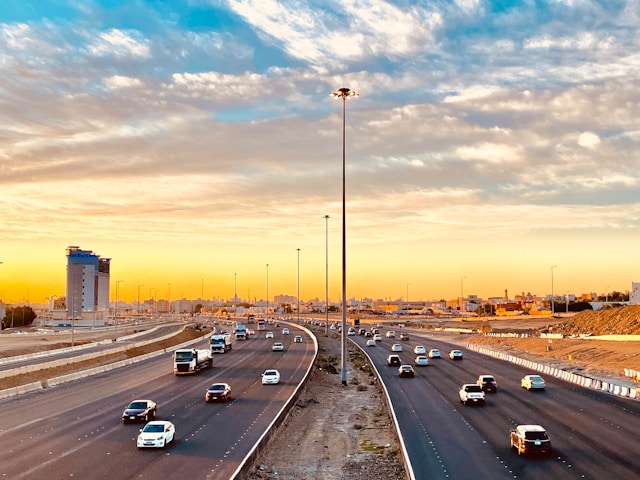Gallup survey reveals high safety perceptions in Gulf nations attributed to economic prosperity and strong law enforcement.
A recent Gallup global safety survey has positioned Saudi Arabia, Kuwait, and the UAE among the world’s safest countries, showcasing a high sense of security reported by residents. The Global Safety Report, published on September 24, highlights that a majority of respondents in these three Gulf Cooperation Council (GCC) nations feel secure even during late hours in their local areas.
neighbourhoodsAccording to the 2023 survey, Kuwait leads the way in public safety, with an impressive 99 per cent of respondents indicating they feel safe walking alone at night in their cities or neighborhoods. Following closely, 92 per cent of participants from Saudi Arabia and 90 per cent from the UAE reported similar sentiments of safety. Bahrain, while slightly lower, still showed a strong level of confidence, with 87 per cent of respondents feeling secure in their surroundings.
Embed from Getty ImagesThe Gallup survey targeted adults aged 15 and older across 140 countries and regions, shedding light on the factors contributing to the high safety perceptions in these Gulf nations. The report attributes the sense of security primarily to economic prosperity and effective law enforcement practices.
Kuwait also excelled in the Law and Order Index, scoring an impressive 98 out of 100 in 2023. This achievement solidifies its status as one of the safest countries globally, a position it has maintained since 2019 in Gallup’s annual safety report. Notably, only 4 per cent of surveyed adults in Kuwait reported experiences with assault, and just 1 per cent reported theft. However, the survey did not assess residents’ confidence in police forces, which could provide a more nuanced understanding of safety perceptions.
On a global scale, the survey found that 70 per cent of adults felt safe in their areas during late hours in 2023. In the Middle East and North Africa region, this figure was slightly higher, with 74 per cent of respondents expressing similar feelings of security.
Earlier this year, Saudi Arabia garnered attention as the safest G20 country for solo female travellers, with the city of Madinah receiving the highest safety rating worldwide from InsureMyTrip for three consecutive years. This recognition underscores the Kingdom’s commitment to enhancing safety measures and ensuring a secure environment for residents and visitors alike.
Analysis
Political Perspective: The findings from the Gallup survey reflect positively on the governance and stability of the Gulf countries. Strong law enforcement and economic prosperity, as cited in the report, contribute to a secure environment. This perception of safety can enhance the reputation of these nations in the international arena and attract foreign investments, bolstering their economies.
Social Perspective: The sense of safety reported by residents has significant social implications. When citizens feel secure in their communities, it fosters a sense of belonging and encourages social cohesion. High safety perceptions can lead to increased community engagement and participation in public life, enhancing the overall quality of life.
Racial Perspective: Safety perceptions can vary among different racial and ethnic groups within the population. Understanding how various communities experience safety can provide a more comprehensive picture of the social dynamics at play. Inclusive policies and practices can further ensure that all segments of the population feel equally safe and secure.
Gender Perspective: The high safety ratings, particularly for female travellers in Saudi Arabia, highlight the progress being made toward gender inclusivity and safety. Ensuring a secure environment for women is crucial not only for societal equality but also for economic growth, as it encourages greater participation of women in the workforce and public life.
Economic Perspective: The connection between economic prosperity and public safety is evident in the survey results. As GCC countries continue to invest in their economies and infrastructure, the resulting stability contributes to a secure environment. This positive perception of safety can enhance tourism, foreign investment, and overall economic development in the region.
